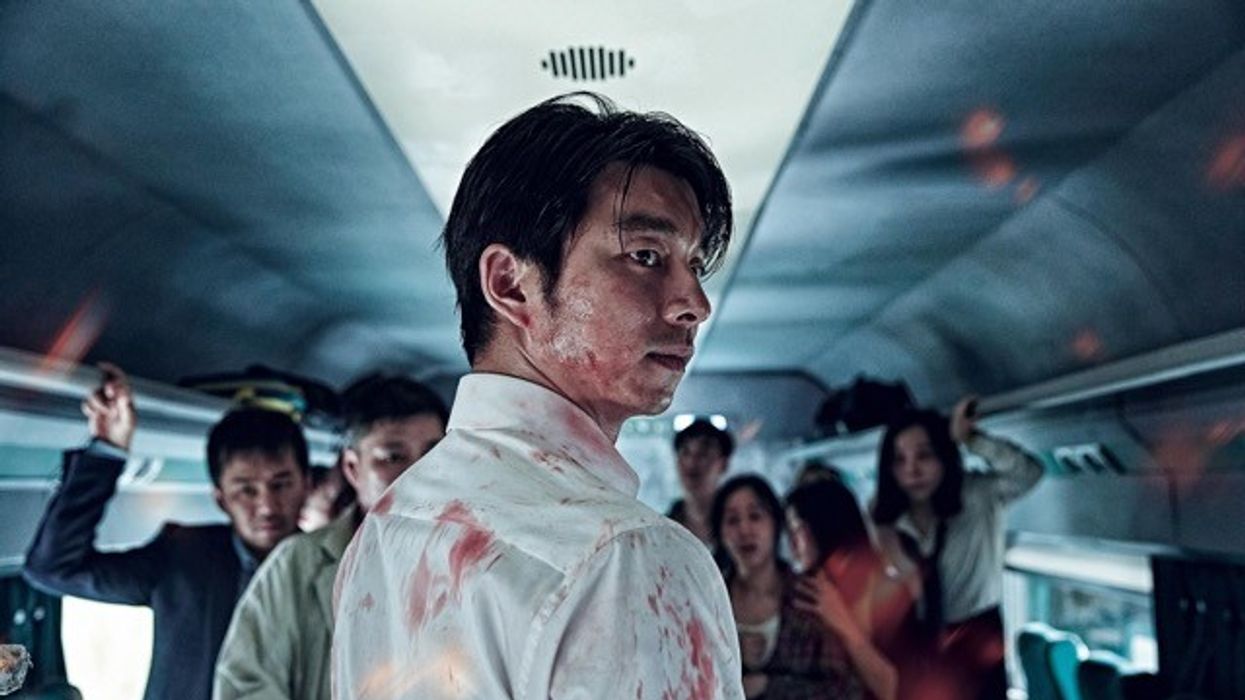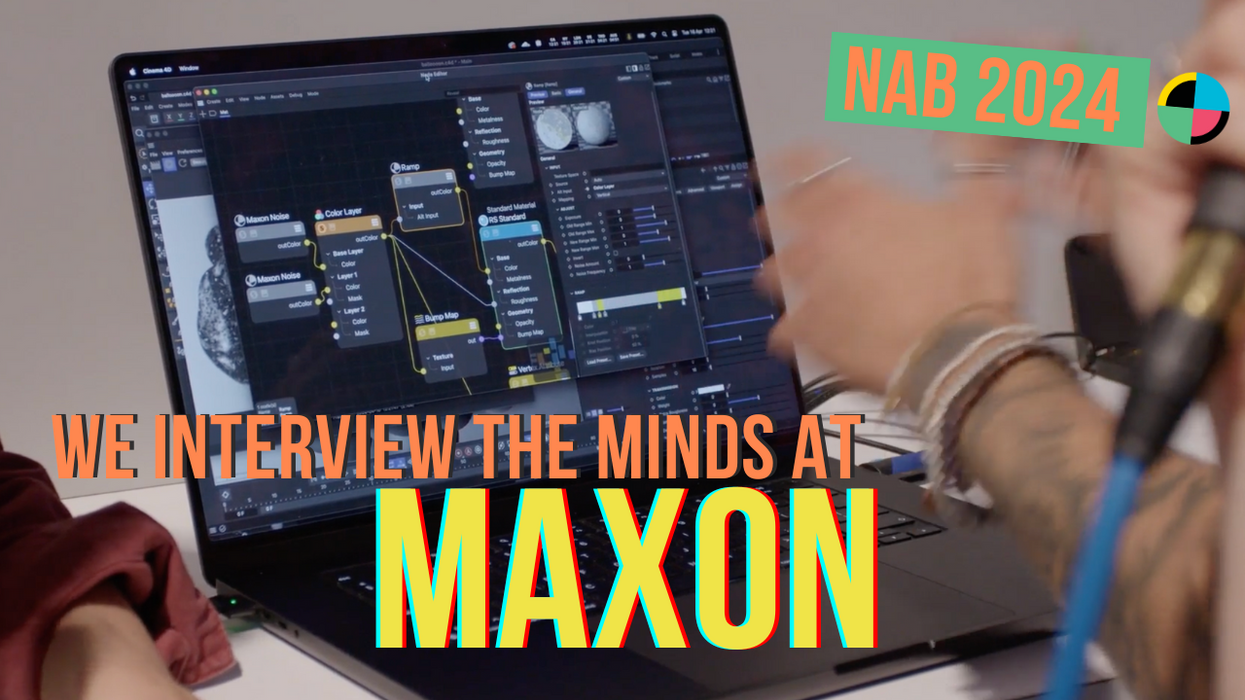How a Visual Master Re-Animated the Zombie Genre in 'Train to Busan'
Korean director Sang-ho Yeon’s brilliant zombie thriller got even typically aloof Cannes audiences cheering.

Amidst dark tales of suspense and lachrymose romances, a hidden gem emerged at Cannes 2016: Korean Director Sang-ho Yeon’s surprisingly lively zombie thriller, Train to Busan. It was surprising particularly because this niche genre has literally saturated the market with blood and gore, turning a once original spectacle into a cliche affair—and even more surprising because this film’s trailer is nightmarishly similar to the recent zombie dud, World War Z (2013).
Nonetheless, the theater was completely packed for Train’s midnight premiere—perhaps because the highbrow Cannes audience was thirsty for a B-movie breather.
Next surprise: the response was ecstatic. Thirty-seven-year-old Yeon proved that he can animate both onscreen images and audience: I’ve never seen a crowd more involved, most certainly not at Cannes. The film elicited applause, cheers, laughter, and visceral reactions both guttural and physical. B-movie or not, Train to Busan clearly scored an A+.
So how did Yeon do it? What makes Train so different from countless half-baked attempts at the zombie genre?
For starters, this is Yeon’s first live-action film. Until now, he has been known as an animator with a notable eye for the cinematic. His animated films have been screened and won awards at numerous festivals. In fact, Yeon boasts the first Korean animated film to be invited to Cannes: his dark take on bullying, The King of Pigs, screened in the prestigious Director’s Fortnight section of Cannes 2012. And before all of that, Yeon earned a degree in Western Painting. It is therefore no surprise that his first attempt at live action is both unique and spellbinding.
“We wanted a high-speed movie with a lot of dynamism, but didn’t want to overcomplicate it. Action movies can be cumbersome, have too much going on. We wanted a basic structure.”
Transitioning from animation to live action
When I sat down with Sang-ho Yeon to discuss his revitalization of the now (un)dead zombie genre, I asked what inspired his switch to live action. “I always thought I’d do a live action film at some point. My previous animated films were quite realistic, so by the time I made King of Pigs I’d received proposals to make live action movies. Then came Seoul Station—an animated tale filled with zombies—and I liked the premise so much, I decided to take it in a new direction, a live-action rendition, and my producers agreed.”
In person, Yeon is remarkably modest. Initially, he relied on the help of a translator—but as we spoke, his enthusiasm grew. It soon became clear: even more important than why he switched to live action is how.
Bringing zombies to life through breakdancing
“I don’t know if you can say there is a style to my films—but if there is, my style is to keep things simple and avoid too many cuts,” Yeon said. He believes that most action thrillers rely far too heavily on an excessive number of cuts, and he credits his director of photography, Hyung-deok Lee, for helping him keep Train’s individual shots to a minimum. “We wanted a high-speed movie with a lot of dynamism, but didn’t want to overcomplicate it. Action movies can be cumbersome, have too much going on. We wanted a basic structure.”
Yeon and Lee have collaborated previously on two animated features, the 2012 King of Pigs and 2013’s The Fake. “Because Lee and I have worked together before, he really knows my style," Yeon said. "He has analyzed it."
Their collaboration pays off. Shot in standard 1.85 instead of widescreen, Train is a sleek visual feast, a seamless series of deft camera moves and no wasted shots. Physically, it uses confined, almost claustrophobic settings where bathrooms and luggage racks become unlikely safe havens. Tonally it is equally well-oiled, hitting the sweet spot between horror and fun.

Favorite moments include a bumpy Go-Pro ride on a charging zombie; a millennial skateboarder’s iPhone-to-YouTube footage documenting a zombie attack; and the superbly crafted suspense sequence where a driver tries to switch trains. Even better, Yeon’s zombies are unlike any we’ve seen: there are no shambling corpses. Instead, the virus that takes over Yeon’s film imbues his undead with frenetic fervor. They skitter across the screen with a spastic urgency, their contorted, broken limbs failing— at times invoking sheer terror, other times outright comedy.
Yeon perfected this "realistic" take on zombies during the making of his most recent animated feature, Seoul Station. Seoul will be released this summer at the Annecy Film Festival in France, as a prequel to Train to Busan. Both films feature zombies— but that doesn’t mean the transition was easy. Yeon confides that at first he wasn’t sure how to translate the erratic movements he achieved in Seoul Station into the live-action he envisioned for Train. His solution? Break-dancing.
"We hired a dance team to create specific choreography for our film and to coach our human zombies," he said. "We had our actors learn some very strange dances, with unnatural movements like having broken elbows."
This was a crucial decision: many animators might have gone for a CGI-heavy approach, but it’s the bizarrely believable frantic movements of Yeon’s zombies that make them not just threatening, but terrifying…and impossible to look away from.
“One of the most important things about Train is that the villain and all the main characters are all really average, common people. That makes it more accessible for the audience: they share similar emotions.”
Creating sympathetic villains
Yeon credits a good part of his film’s appeal to its Korean background: “This is a genre that has not been fully explored in Korean cinema, but even so Train is very Korean. It contains elements of Korean emotion and tone that aren’t felt in Hollywood films or elsewhere, for that matter. That’s an important ingredient of Train’s cathartic experience.”
In particular, he believes that audiences can identify more easily with his characters than those in a big budget Hollywood film, where characters are, as he describes it, unrealistically “special.”
“One of the most important things about Train is that the villain and all the main characters are all really average, common people," Yeon said. "That makes it more accessible for the audience: they share similar emotions."

Much like Yeon’s zombies, his satire is biting. Along with likable monsters, his film offers a powerful allegory, an undercurrent of economic inequity and corruption that indicts both Korea and the rest of the world. Not only are his characters reflections of ‘everyman,’ but they also embody humanity’s vices. For example, the film’s villain is the selfish head of an express bus corporation— and even Yoo Gong, the film’s would-be hero, is a fund manager who applies his on- the-job ruthlessness to the zombie apocalypse. Redemption comes only when Yoo Gong’s pre-teen daughter (played exceptionally by Su-an Kim) offers her father a moral anchor and potential transformation.
Yeon’s films are also personal allegories: he uses his art as both conduit and catharsis for more intimate truths. King of Pigs, for example, came from Yeon’s childhood experiences with bullying — and when asked about his inspiration for Train to Busan, he reveals that much of its terror was inspired by his fears for his family.
“I sometimes have terrifyingly vivid dreams of big wars or catastrophes—and the main emotion I feel is my need to protect my family, the urgency to sacrifice myself for them if they’re in danger.” It’s a very real fear: Yeon hasn’t forgotten the MERS epidemic that swept South Korea in 2015. “The emotions caused by these nightmares, I think, are universal, so I used them as inspiration for Train.”
“Dare to be adventurous, try new things. That’s the motto of filmmaking: it doesn’t matter if you fail, keep dreaming big.”
Keeping it authentic, even in a zombie thriller
Train to Busan is surprisingly authentic on multiple levels. Both appropriately over-the- top and supremely self aware, this film rejects pretentious standards and never veers off course. In fact, it is the type of zombie movie the genre needed —mainly because it dares to add a light touch to disaster. An inch more serious, Train would feel heavy handed; an inch more cheesy, and it would fail as well.
This effect is not by pure luck. It is instead an intensely personal, masterfully executed vision, made with love. Train to Busan feels like a handwritten letter from its far too modest director: sealed with a kiss, delivered with a wink.

How to succeed as a filmmaker: dream big
Yeon’s message to emerging filmmakers is simple but heartfelt: “There’s no 100% right way to do it, no rule to moviemaking. Unfortunately, once a film is well-received by the press or an audience, the director tends to repeat the same techniques over and over. But the truth is, it’s really hard to know what talent is actually being recognized. You’re better off listening to your own inner voices. Dare to be adventurous, try new things. That’s the motto of filmmaking: it doesn’t matter if you fail. Keep dreaming big.”
See all of our coverage of the 2016 Cannes Film Festival.
'Train to Busan' opens theatrically in the U.S. on July 22, 2016.












